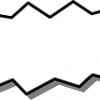Writing: Placing Commas
Although I have got several articles accepted by Constant Content (and 1-2 other strict websites), I am still not 100% confident in my work sometimes when it involves comma usage.
For example, sometimes I write sentences that are longer than average, which makes it difficult for me to discern whether or not I should add the comma or not.
Like this sentence: If you want to lose fat, low-carb dieting may work, but it may not be optimal compared to a diet that includes more fruit and grain.
Do I need 2 commas in that particular sentence? I get paranoid in my writing sometimes because I do not want to make foolish mistakes and get work rejected.... Just because I got articles accepted does not mean I will not run into sentences that may perplex me.
Just because I got articles accepted does not mean I will not run into sentences that may perplex me.
What is the best way to know (with 99.9% assurance) whether commas should be added or not?I struggle with commas as well. I love this quote by Oscar Wilde - “I have spent most of the day putting in a comma and the rest of the day taking it out.”
Kain, you can also use the m-dash or the n-dash in compound sentences. It can replace commas, the word 'and' or 'but'. For instance:
I went to the county fair today -- it was delightful. (m-dash)
I went to visit Winchester Mystery House - and saw a ghost. (n-dash)
http://www.dashhyphen.com/using-em-dash/In this sentence: If you want to lose fat, low-carb dieting may work, but it may not be optimal compared to a diet that includes more fruit and grain.
It can be written as:
If you want to lose fat, low-carb dieting may work -- but it may not be optimal compared to a diet that includes more fruit and grain.
The first comma is unnecessary, the second one as good (coming before a "coordinating conjunction" (and, if, but etc).
I am in the process of preparing a hub on proper punctuation usage, including the use of commas so, please, look out for it. In the meantime, a comma is used when either, you want the reader to pause after a word, a succession of words, a phrase or phrases. See the following: "He wore a blue, greenish, gold, purple and black tie." A comma typically follows a succession of adjectives or descriptions... See my hub when it comes out very soon this week. I hope that helps for now.
These type of sentences confuse me (and I write them lol).
"To maintain a healthy immune system, make sure to get adequate amounts of vitamins, particularly vitamin C."
I put a comma before make because I feel like a pause is required. Also, "To maintain a healthy immune system" is a dependent clause, right?No, only the one comma is necessary.
If you want to lose fat, low-carb dieting may work but it may not be optimal compared to a diet that includes more fruit and grain.You need the comma after work because you are connecting two complete sentences that could stand on their own.
If you find yourself being perpexed by a sentence you are writing, then your readers may very well be perplexed too.
I run into this a lot when I write. And I try to consider how my reader is going to interpret what I said. If I see a problem where it can be understood in two different ways, I rework the sentence. Sometimes I even rework the entire paragraph.
Taking your example, I would break it into two sentences and simplify it with less words so the reader gets its meaning right away. Such as...
If you want to lose fat, low-carb dieting may work. But a diet that includes more fruit and grain is even better.
See how that works? I bet your got its meaning without having to think. So you're free to move on. I try to never let my reader stumble.Well, I ended up completing the hub on comma usage. It should get featured shortly. I hope this boosts your confidence and understanding in writing and using commas.
I saw your profile. You had proper comma usage there so, so far so good...
Quite frankly, my writing on HubPages is not as good compared to my writing that I am doing for Constant Content -- more recently. Constant Content has extremely strict standards. I will use words like "and" at beginning of sentences on some Hubs, but I won't for websites that adhere to strict standards (they will not accept).
Of course, I consider my "how to get a bigger, firmer, lifted butt" hub pretty good. However, writing a 2000 page article like that one is very difficult when strict standards are in place, as it's easier to make typos etc...
I also have another HubPages account with a few hundred hubs. My writing was not as good back then -- mainly because I typed very fast and made typos. But I had some hubs that went semi-viral in 2011 -- back when I HubPages was a better place to get article exposure. I once had a hub get 5000 views a day for a while.
Google Algorithms do not care about perfect grammar, but editors do.
- LisaKeatingposted 11 years ago
0
As a former English teacher, I know it can be confusing. It made my day to see someone asking about comma usage (grammar nerd). You should find a basic grammar guide about proofreading and print out the rules to keep handy. If you get a handle on the basics, then it won't be a big deal if you make an occasional error. I have a hub about polishing your work, but it is not a complete usage guide.
Your sentence above is punctuated correctly. You need the first comma because you started the sentence with a subordinate clause. You need the second comma because you have a coordinating conjunction in front of a main clause. (Some people call these dependent and independent clause.) There is another "rule" that says if you have several commas in other places in your sentence, you can change the comma in front of the coordinating conjunction to a semi-colon to make the sentence easier to read. So if at the end of your sentence you had listed "fruits, grains, and cereals" you could change the comma before "but" to a semi-colon.
Don't be afraid of writing longer sentences if you know how to punctuate them (no comma after "sentences" because the subordinate clause is at the end). However, you should use easy-to-read sentence structure for informational writing to get your point across to the reader. If in doubt, you can end a sentence and start a new one. However, reading a bunch of short sentences gets boring.Yes, if I am doubtful, I sometimes make two shorter sentences. Most of my sentences tend to be like 16-25 words per sentence (sometimes longer, but rarely). Not sure why. I just tend to write longer sentences. My English teacher from a few years ago said (12) was average I think....But 12 seems small sometimes.
One article I recently wrote in Word has 17 words on average per sentence.
I think my sentences are longer because my writing tends to be like this: While Sally was cooking dinner for John, Rose was outside playing with all her friends from Middle School.
Here is a hub by Word55 that will be helpful: Punctuation Uses Of Commas in the English Language
http://word55.hubpages.com/hub/Punctuat … shLanguage- LisaKeatingposted 11 years ago
0
Kain 360. In my response above, I am referring to the sentence in the original question. For your other example, here is how I would parse it.
"To maintain a healthy immune system, make sure to get adequate amounts of vitamins, particularly vitamin C."
You started with an introductory infinitive phrase, so you need a comma after "system." The second part of your sentence is a main clause with "understood 'you'" as the subject. Then, "particularly Vitamin C" is a non-restrictive adverbial phrase. You need the comma before it to show that you are explaining the word "vitamins."
It seems like you have a pretty good handle on what you are doing even though you may not know the rule. The first step is recognizing that there may be a rule and you want to follow it. I highly recommend the Purdue OWL site online. Lots of teachers use it. You don't have to be able to name every element of a sentence and know all the terms to understand the basics of sentence structure.Wow, you must be a mind reader! I feel like I have a handle on many things (when it comes to writing), but do not fathom every single rule out there. Quite frankly, I do not know how I even do, as I was not someone who particularly liked reading as a child. But for some reason I liked writing (ironically). But I think I actually liked to read -- I just did not understand things back when I was 10-12 years old. For example, I had Harry Potter books, but only read parts of them. Now this year, I actually read 4 books for practice & understood them easily -- unlike my former self from 10-12 years ago. Also, I am reading some more complicated stuff like "Interpretation of Dreams by Sigmund Freud. Sigmund Freud writes complicated stuff...
Some sentences I know are wrong, but I may not know the "specific reasons" why. I guess it's good I am a native English speaker LOL. Foreigners have trouble speaking/writing English -- not all of course.
I might get a book called {b]Hodges' Harbrace Handbook[/b]. Constant Content recommends it for their standards. Of course, I may look into other books as well, but some grammar books are inaccurate -- so I hear.
As a former Latin teacher, I concur with the English teacher.

Comma usage is more than just a matter of putting commas where they "feel right." There are specific rules dictating where they belong and where they don't. Commas are like the joints in your arms: you need them at the elbow, wrist, and shoulder, but you don't need them midway down your forearm. The rules of grammar teach you where the joints are and how to connect them. Clauses are the bones.
I know, I know, terms like "dependent clause" and "subordinate clause" sound as unfamiliar as Greek! Here's Purdue's guide to different types of clauses and how to punctuate them. Don't be afraid to ask for help. But take comfort in the fact that your first instinct was correct, Kain!
Also, if you're having problems, look for ways to simplify. As Glen notes, if you're perplexed, your readers may also be perplexed. Try rephrasing or dividing sentences until they are clear and straightforward. This is something I'm having to work on myself, as I tend to write overly complex sentences.- LisaKeatingposted 11 years ago
0
By the way, Kain, you made my day by giving me a chance to talk punctuation!
That is correct Kain. But, and, and also are not proper sentence beginning words because they are conjunctions and in sentences, they don't need a comma before them either.
Yes, but writing is very subjective it seems.
For instance, I had a teacher who condemned using conjunctions at the start of sentences. Another teacher showed us an article (that she said was good) and it has conjunctions at the start of many sentences!
I don't know. Writing just seems highly subjective. From a philosophical point of view, the only reason why things are "right" or "wrong" is because we give meaning to these words...I could say hustangbao means garbage can. If everyone associates that word to mean garbage can, then it is correct. If you know what I mean. A sociology teacher did an example like that.word55, I'm trying not to be a grumpycat, but it's hard to keep quiet when you're giving out advice that would earn an "F" in school or red ink from an editor.
For example, here's two sentence snippets.
My dog is a Beagle mix.
He thinks he's a Great Dane.
Each snippet is a clause, because it has a subject and a verb. Each snippet is an independent clause, because it can stand on its own as a complete sentence.
When you combine two independent clauses with a conjunction, you must insert a comma before the conjunction:
My dog is a Beagle mix, but he thinks he's a Great Dane.
That's standard English grammar for compound sentences. Look it up (1, 2, 3).
Since you've written a guide to comma usage, I suggest that you double-check the advice you're offering against APA usage, MLA, Strunk & White, or some other expert source, in order to make sure you're giving your readers the correct information.
We all make mistakes. The tricky part is trying not to teach others our mistakes. When I taught Latin, it was a standing rule that my students would receive 1 point extra credit if they found and corrected a mistake on one of my quizzes or tests. Sadly, someone often earned that point. When I handed the quizzes back, I'd invite them to the front of the class to explain why their teacher was a dunderhead.
I'm going to go with what the former English and Latin teachers think, especially as that matches everything I was taught as a writer. And it sounds best when read aloud with the appropriate pauses.
The important thing about commas and other forms of punctuation is that they reflect your speaking voice. In other words, if you'd pause, put in a comma. If you'd stop for a breath, put in a period. If you're off on a new idea, it's a paragraph.
Readers will appreciate your work best when they feel like you're talking to them.
Don't worry to much about the pedantic crowd. They'd have hated Salinger, Twain and Cummings. If you're point comes across effectively. That's all that matters.If your point - I'll bet you did that on purpose for fun!
I love this response and completely agree. If a writer's goal is to impress their teachers, peers, or potential critics, then by all means try and follow all the rules. Personally, I appreciate when a person's personality comes through in their writing, not just because of what they convey, but also because of their style.
I agree, the communication needs to be as clear as possible, but how boring would it be if everyone followed every rule perfectly? It would be as though one robot wrote everything. I am not endorsing illiterate ramblings here, but simply applauding free expression as being more interesting to read.
David, Thanks for the tip, I too am not very confident when it comes to the use of commas.
Kain:
Remember that commas used with but/and are compound sentences. If the sentence after the but or and can stand alone (it has all parts that make it a sentence) then a comma is necessary. I'll give you a sentence from one of my blog posts:
"I have had teachers who, at the time, seemed on par with her, but I realized that it was my own self that turned those people against me."
So if the sentence after the but/and has a predicate/subject then it can stand alone and would require a comma.
Like, "Would require a comma". This is not a proper sentence so a comma would change the meaning.
I know I sometimes have issues putting commas when it comes to then, than, and as well as. Generally commas are used if the above are put as fillers. Examples:
Well, then, what am I going to do about it?
Spelling mistakes, as well as grammatical errors, are distracting to a reader.The first comma should be eliminated. The second comma is necessary. A good reference for grammar questions is Grammar Girl (online site
I took an online grammar course that was very intensive. I failed by one question. It probably would help to find my notes and review them several times until they stick in my brain. It was through Edtogo.com
- LisaKeatingposted 11 years ago
0
Don't just put in commas when you pause because it may be incorrect.
Your sample sentence is perfect, Kain. The secret lies in syntax variations (O/S/V/O) and recognizing how phrases function in the sentence. Direct address, complete sentences combined by conjunctions, interjections (oh, ah, hey, etc.), parenthetical expressions, day/year, city/states, numbers over 999 are all places were numbers get used. When you want to add emphasis by having a pause is also a place where a comma can be used.
Strunk and White, as well as Writing for Style are good reference books, also there are plenty of free sites online that explain grammar and punctuation.
The comma has its place. A misplaced comma can change the meaning of a sentence.
Keep up the good work and enjoy your writing!You should be able to follow the rules perfectly, and not be boring because while expressing an idea or a story, you can do it or have it read emphatically within the rules.
AP style otherwise called Associate Press style is the best source for grammar and punctuation. This is what most colleges, etc follow.
Well, I got an "A" for it at the schools I went to. Plus read my hub on commas. The references are the ones that concur with the advice as well. It's okay to grump.
Thanks for replies guys. I have not really been rejected for comma usage by an editor yet.
 I just want to make sure I use them in longer sentences correctly. Sometimes I come across questionable sentences in my writing.
I just want to make sure I use them in longer sentences correctly. Sometimes I come across questionable sentences in my writing.
I must follow what the website(s) standards are. HubPages does not have strict standards at all, as anyone can sign up, and there are no editors.
I can't remember the name, but some website a couple years ago would reject articles when using "however" at beginning of sentences -- constant content does not...
Writing can be subjective, as I said before. It also depends on whether it is creative writing, informative writing, poetry, etc..And whether it is 1st, 2nd, or 3rd person (or combination).Kain 360,
Thanks. It is great to know people like you are out there kicking the ball.
If everyone had to be perfect, well nothing would get done.
People that never attempt anything out of their safety zone don't have to worry about making mistakes. Then that would mean a boring life. So here I am grammatically correct or not. I go back and correct my hubs all the time. That is one of the reasons I slowed down a bit. I am learning a lot.According to Oxford, It can be used either way:
Rule 1. Use commas to separate words and word groups in a simple series of three or more items.
Example: My estate goes to my husband, son, daughter-in-law, and nephew.
Note: When the last comma in a series comes before and or or (after daughter-in-law in the above example), it is known as the Oxford comma. Most newspapers and magazines drop the Oxford comma in a simple series, apparently feeling it's unnecessary. However, omission of the Oxford comma can sometimes lead to misunderstandings.
Example: We had coffee, cheese and crackers and grapes.
Adding a comma after crackers makes it clear that cheese and crackers represents one dish. In cases like this, clarity demands the Oxford comma.
We had coffee, cheese and crackers, and grapes.
Fiction and nonfiction books generally prefer the Oxford comma. Writers must decide Oxford or no Oxford and not switch back and forth, except when omitting the Oxford comma could cause confusion as in the cheese and crackers example.I like to use the Oxford comma -- it defines the grouping more accurately. Thanks for bringing this up, Word.
Word 55, you're missing Greekgeek's point. Kain's question is not about separating a list of items; it's about connecting clauses. When a conjunction is used to connect two independent clauses, it needs to be preceded by a comma. Kain's second comma is a perfect example of that correct usage.
In your hub on comma usage, you focus mainly on using commas to separate a list of items or phrases, but you make no mention of this other important use of the comma.Yes, that is usually where I get confused. I mean, I may be right, but still question whether or not comma(s) are needed. (depends on sentence).
I type in word, but it's not perfect.Kain, sorry to drag the topic on, but a sentence in your last post raises another interesting point about commas that you might find useful.
"I may be right, but still question whether or not comma(s) are needed."
As I learned it, there should be no comma before 'but' in this case as it's connecting to an incomplete clause. It has no subject. Actually it does, but it's sharing it with the first clause.
"I may be right but still question whether or not commas are needed."
Alternatively, keep the comma, but repeat the subject.
"I may be right, but I still question whether or not commas are needed."
So here's one for the teachers.
What kind of clause is that incomplete clause? I mean, it's still an independent clause in spirit; it just left out its unnecessary subject. Does that then just make it a dependent clause, or is there another fancy name for this sharing of the same subject between two independent clauses?It is not a clause. It is a phrase. Clauses always have a subject and a verb. You are right when you said Kain did not need a comma in that sentence.
There is a rule that a comma should precede a conjunction and a rule that says it shouldn't so, I'll rest my case here... I like how you put that Phyllis :-).
- LisaKeatingposted 11 years ago
0
Phyllis Doyle, dashes indicate abrupt interruptions. I would avoid using them in place of a comma. Also, Linda Smith, most colleges use MLA for Liberal Arts courses and APA style (American Psychological Association) for science and math studies. Journalists use AP or Chicago style. Journalists leave out the Oxford Comma while MLA style includes it. Journalism style is a less-is-more style.
I disagree that following the conventions of grammar makes writing boring. However, most authors have editors to take care of these details for them. Also, the best writers understand the conventions of writing and them break them only for effect. Like this. Ad this. As a journalism/English major I had to learn to go back and forth. Not everyone should worry about every element of grammar such as when to use a nominative absolute clause or how to punctuate an elliptical clause. But being able to following basic comma rules is important for a published writer.
If nothing else, type your articles in Word first and run a grammar check. Sorry to sound like the Grammar Police, but 33 years in the business will do that to you! And yes, I make mistakes and get stumped on sentences sometimes, too.I like using the m-dash. It puts emphasis on a point I want to make, and it works well for me.
If this keeps up some will be resorting to "The Chicago Manual of Style" online.
According to Oxford rules, your punctuation of commas here, are proper, Kain.
Puntuation creates a rhythm in the readers' mind as they go through the text, so they can digest the meaning of each particular part of the text in turn. I think less punctuation is usually better than more because then the reader is more free to find their own rhythm rather than having one imposed on them. So if you don't think a comma is 100% necessary I would suggest leaving it out.
- Ally Lewisposted 11 years ago
0
My general go-to rule is to put a comma where you'd naturally pause to take a breath if you're saying the sentence out loud. Or, when ideas need split up and grouped for better clarity. Commas create an understated emphasis on certain parts of the sentence, so it's really about what ideas or parts of your writing you want to make clear and how you want your sentence to be read. If sentences are shorter, I tend to not have so many commas because then there's no cohesion and too many unnecessary pauses - they're TOO broken up and separated.
Hope this helps!
Related Discussions
- 29
As a writer, do you use commas, here, and there. Or do you use commas, here and
by Deborah 13 years ago
As a writer, do you use commas, here, and there. Or do you use commas, here and not there?I make a living online as a writer, and I believe that writers have to use good judgement sometimes in punctuation, but I have conflicting editors that believe that commas should be used after the first word,...
- 19
Is it grammatically correct placing comma after the word and?
by astigpinoy16 14 years ago
Hello guys!I just want to ask something, as you can see on my subject of my topic, I am confused when to put comma after the word "and"? I have read hubs about how to use comma, but some time I see sentences where comma is preceded by the word and.I know how to use comma like: use a comma...
- 163
Any pet peeves on English Usage
by Catherine Giordano 11 years ago
Do you have a pet peeve about words commonly misused or commonly made grammatically mistakes? Or perhaps you have a question--something you are not quite sure about concerning word usage or grammar. Please let me know and I may address it in my "The Naughty Grammarian" series....
- 45
Should I use i or I
by Ghaelach 14 years ago
At the beginning of a sentence it's quite clear we use a capital letter (ie.I), but in the middle of a sentnce do I use the small i when it's on it's own (i) or do I use it's larger brother the capital (I)?? also when I break a sentence with a comma (,) is it correct to use "and" after...
- 8
Two Questions Really:1: do you know what the sentences refer to? 2: ever seen so
by Allen Edwards 10 years ago
Two Questions Really:1: do you know what the sentences refer to? 2: ever seen so many commas?"a complete system on things of a moral and spiritual order, yet it can not be considered either as a philosophy or as a religion; I mean to say, it rests, apparently at least, neither upon reason nor...
- 11
Commas and Excessive Wordiness
by Marie Flint 5 years ago
Lately I've been reading a lot of self-published authors (not necessarily on HubPages) who seem to have no concept about how to use commas. Writing is a craft. You express your feelings, share information, entertain, or persuade. Commas have their place, rather like a vintage frame for a vintage...




























